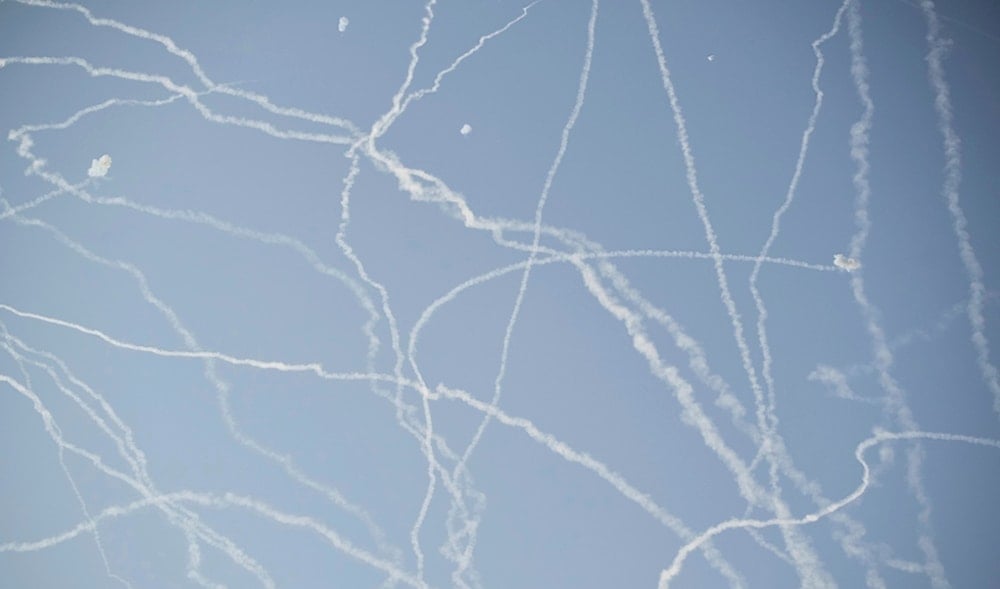Iran joins cyber battle, hijacks Israeli security cameras: Bloomberg
Amid the intensifying war, Iran is reportedly tapping into security cameras in "Israel" to gather intelligence and footage of the aftermath of its missile strikes.
-

Israeli air defense system fires to intercept missiles during an Iranian missile wave over Tel Aviv, Thursday, June 19, 2025. (AP)
Iran is reportedly exploiting Israeli security cameras to gain real-time intelligence on missile strike impacts and military activity, exposing longstanding vulnerabilities in the occupation's private surveillance systems, a Bloomberg report indicated.
Refael Franco, former deputy director general of the Israel National Cyber Directorate, said that Iran has been actively attempting to connect to private surveillance cameras across occupied territories to monitor the aftermath of missile strikes and refine targeting precision.
"We know that in the past two or three days, the Iranians have been trying to connect to cameras to understand what happened and where their missiles hit," Franco stated.
Another spokesperson from the Israel National Cyber Directorate confirmed a pattern of attacks on internet-connected cameras, citing renewed attempts amid the ongoing war. Photos from strike zones remain under official blackout. Meanwhile, Franco and other cybersecurity officials urge settlers to disable or secure their home surveillance systems.
A surge of cyberattacks has been recorded since "Israel" attacked Iran on June 13. Israeli hacking group Predatory Sparrow claimed attacks on Iranian financial and crypto institutions, while Iranian state media reported full-scale cyber offensives on its infrastructure.
Ron Meyran, Vice President of Cyber Threat Intelligence at Radware, alleged that the sharp 700% rise in cyberattacks over the past two days resulted from operations by Iranian state-backed hackers and affiliated groups. These offensive campaigns involved distributed denial-of-service (DDoS) attacks, attempts to breach critical infrastructure, data exfiltration efforts, and coordinated malware distribution.
Global exploitation of smart cameras
Bloomberg also linked this to Hamas, which in 2023 reportedly hacked private CCTV cameras ahead of the October 7 operation, using footage from thousands of cameras to gather intelligence. Similar practices have been observed in other conflicts, such as Russia’s use of surveillance data during the Ukrainian military operation.
Despite repeated warnings from experts, millions of surveillance devices worldwide remain unsecured. Geoff Kohl of the Security Industry Association emphasized the importance of higher-grade systems with regular updates and customization options. Peleg Wasserman, a security architect, warned that weak protections make cameras a "stepping stone" for deeper network breaches.
A 2022 report found 66,000 personal cameras in occupied territories using default passwords, making them easy targets. Many of these were left vulnerable in areas where Hamas operated. Cameras placed in agricultural fields captured troop movements.
Following these incidents, the Israeli government issued nonbinding guidelines urging better cybersecurity practices, including two-factor authentication and restrictions on camera visibility near sensitive areas.
Read more: Iran blocks major cyberattack targeting critical infrastructure

 3 Min Read
3 Min Read










